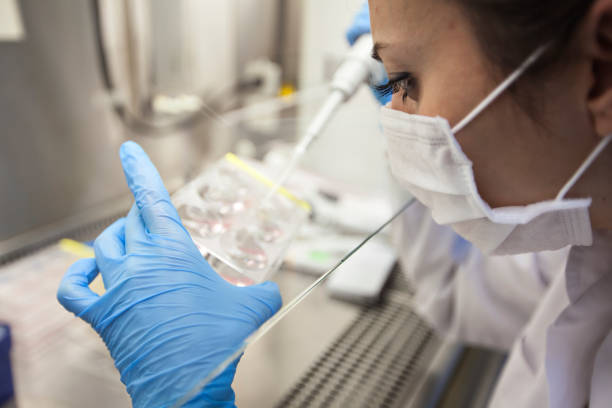Which Medications Treat Male Infertility Issues? Doctor’s Picks

Table of Contents
Unveiling the Causes of Male Infertility

Male infertility refers to the inability of a man to impregnate a woman due to factors related to his reproductive health. While female infertility has often been discussed and studied extensively, the causes of male infertility are equally important to understand. By unraveling the underlying causes, we can pave the way for effective diagnosis and treatment to address this issue.
One of the primary causes of male infertility is abnormal sperm production or function. This could be the result of genetic factors, hormonal imbalances, or certain medical conditions. For instance, conditions such as varicocele, which refers to the enlargement of veins within the scrotum, can cause overheating of the testicles, adversely affecting sperm production. Additionally, infections within the reproductive system, such as orchitis or epididymitis, can damage sperm cells and hinder their ability to fertilize an egg. Understanding these causes is crucial in order to develop targeted treatment approaches that can address the specific fertility challenges faced by men.
• Abnormal sperm production or function is a primary cause of male infertility.
• Genetic factors, hormonal imbalances, and certain medical conditions can contribute to abnormal sperm production or function.
• Varicocele, the enlargement of veins within the scrotum, can lead to overheating of the testicles and affect sperm production.
• Infections such as orchitis or epididymitis can damage sperm cells and impede their ability to fertilize an egg.
• Effective diagnosis and treatment for male infertility require understanding these specific causes.
Diagnostic Tests for Male Infertility

Male infertility is a common concern that affects many couples trying to conceive. To properly diagnose the underlying causes of male infertility, a series of diagnostic tests may be performed. These tests are essential in identifying any potential issues with sperm production, sperm quality, or reproductive system functioning.
One of the first diagnostic tests is a semen analysis, which evaluates the quantity and quality of sperm in a semen sample. This test assesses various factors, including sperm count, motility (movement), morphology (shape), and concentration. Results from a semen analysis provide valuable insights into the reproductive health of the male.
In addition to a semen analysis, hormonal tests may also be conducted to evaluate hormone levels that play a crucial role in sperm production. These tests measure levels of follicle-stimulating hormone (FSH), luteinizing hormone (LH), testosterone, and other hormones involved in male reproductive function. Hormonal imbalances can significantly impact fertility, and these tests help identify potential issues.
Furthermore, genetic testing may be necessary to identify any inherited conditions or chromosomal abnormalities that could affect sperm production or function. By analyzing the genetic material, these tests can identify potential genetic factors contributing to male infertility.
Diagnostic tests for male infertility are vital in determining the underlying causes of fertility issues. With the results of these tests, medical professionals can then create personalized treatment plans to address the specific concerns of each individual. It is important to consult with a healthcare provider who specializes in reproductive health to ensure an accurate diagnosis and appropriate treatment.
Hormonal Medications for Male Infertility

Hormonal medications can play a crucial role in addressing male infertility. In some cases, infertility may be caused by hormonal imbalances that affect the production and quality of sperm. These imbalances can be treated with medications that help regulate hormonal levels and improve sperm production.
One commonly used hormone medication is clomiphene citrate. This medication works by stimulating the release of follicle-stimulating hormone (FSH) and luteinizing hormone (LH) from the pituitary gland. FSH and LH play a vital role in the production of testosterone and sperm. By increasing the levels of these hormones, clomiphene citrate can help boost sperm production and improve fertility.
Another hormone medication that may be used is testosterone replacement therapy. This treatment is typically recommended for men with hypogonadism, a condition where the testes do not produce enough testosterone. Testosterone replacement therapy can help restore normal testosterone levels, which in turn can improve sperm production and increase the chances of conception.
It’s important to note that the use of hormonal medications should always be under the guidance of a medical professional. They will evaluate your specific condition and recommend the most appropriate treatment plan for you. Hormonal medications may come with potential side effects and risks, so it is crucial to consult with a knowledgeable healthcare provider before starting any treatment.
Boosting Sperm Production with Clomiphene Citrate
Clomiphene citrate is a medication that has shown promising results in boosting sperm production in some men with fertility issues. It works by stimulating the release of certain hormones in the brain, which in turn stimulate the production of testosterone in the testes. This increase in testosterone can enhance the production of sperm in the testes, potentially improving fertility outcomes.
Research studies have demonstrated the effectiveness of clomiphene citrate in increasing sperm count and motility in men with low sperm parameters. A study published in the Journal of Urology found that clomiphene citrate resulted in a significant improvement in sperm concentration and total motile sperm count in men with unexplained infertility. Another study published in Fertility and Sterility reported similar findings, showing that clomiphene citrate led to a significant increase in sperm concentration and progressive motility.
While clomiphene citrate can be an effective treatment option for some men with low sperm count or motility issues, it is important to note that it may not work for everyone. Additionally, like any medication, it may have potential side effects. It is crucial to consult with a healthcare professional to determine if clomiphene citrate is the right treatment option for you and to discuss any potential risks or concerns.
Treating Hypogonadism with Testosterone Replacement Therapy
The treatment of hypogonadism, a condition characterized by low testosterone levels, often involves testosterone replacement therapy (TRT). TRT is a medical intervention that aims to restore testosterone levels in men to normal range. It involves administering testosterone through various methods such as injections, gels, patches, or pellets.
TRT can effectively alleviate symptoms associated with hypogonadism, including low libido, fatigue, depression, and reduced muscle mass. Additionally, it may improve bone density and cognitive function in some individuals. Before initiating TRT, it is important to undergo a thorough evaluation to determine the underlying cause of hypogonadism. This assessment may include blood tests to measure hormone levels, as well as a physical examination and medical history review.
It is crucial to note that TRT should only be prescribed and supervised by a qualified healthcare professional. They will carefully monitor hormone levels and adjust the dosage as needed to ensure optimal therapeutic outcomes. Furthermore, potential risks and side effects of TRT, such as acne, fluid retention, and increased prostate-specific antigen (PSA) levels, should be discussed with your healthcare provider.
Certainly! Here’s information on treating hypogonadism with Testosterone Replacement Therapy (TRT), presented in a detailed format:
| Treating Hypogonadism with Testosterone Replacement Therapy (TRT)Key AspectsImplications and Considerations | ||
|---|---|---|
| 1. Definition of Hypogonadism | – Hypogonadism is a medical condition characterized by insufficient testosterone production. | – It can result in various symptoms, including fatigue, reduced libido, erectile dysfunction, and mood changes. |
| 2. Indications for TRT | – TRT is considered for individuals with clinically diagnosed hypogonadism and symptoms impacting quality of life. | – It aims to restore testosterone levels to the normal range and alleviate associated symptoms. |
| 3. Diagnostic Process | – Diagnosis involves clinical evaluation, including a detailed medical history, physical examination, and hormone level assessments (testosterone, luteinizing hormone, follicle-stimulating hormone). | – Differential diagnosis is crucial to rule out other causes of similar symptoms, such as thyroid dysfunction or pituitary gland disorders. |
| 4. Forms of Testosterone Replacement | – Intramuscular Injections: Administered every 1-2 weeks using testosterone cypionate or enanthate. | – Transdermal Patches or Gels: Applied to the skin daily, providing a consistent release of testosterone. |
| – Testosterone Pellets: Small subcutaneous implants placed under the skin, releasing testosterone gradually over several months. | – Oral Tablets: Less common due to potential liver toxicity and variable absorption. | |
| 5. Monitoring and Adjusting Treatment | – Regular monitoring of testosterone levels is essential to ensure the effectiveness and safety of TRT. | – Adjustments may be made based on hormone levels, symptom relief, and potential side effects. |
| 6. Potential Benefits of TRT | – Improved Mood: Relief from mood swings and irritability. | – Enhanced Libido: Improvement in sexual desire and function. |
| – Increased Energy Levels: Reduction in fatigue and increased vitality. | – Muscle Mass and Strength: Positive impact on muscle mass and strength. | |
| 7. Risks and Side Effects | – Potential risks include an increased risk of blood clots, exacerbation of sleep apnea, and impact on fertility. | – Side effects may include acne, fluid retention, and mood swings. Individual responses vary. |
| 8. Individualized Treatment Plans | – TRT plans should be tailored to individual needs, considering factors like age, overall health, and preferences. | – Collaboration with healthcare professionals helps establish the most suitable treatment approach. |
Credible Sources:
- American Urological Association (AUA) – Testosterone Deficiency: AUA Guidelines
- Mayo Clinic – Testosterone Therapy: Key to Male Vitality?
- Urology Care Foundation – Testosterone Replacement Therapy
Improving Sperm Motility with Gonadotropins
Gonadotropins are hormones that play a crucial role in spermatogenesis and overall reproductive health in males. These hormones, including follicle-stimulating hormone (FSH) and luteinizing hormone (LH), can be administered to individuals struggling with poor sperm motility, also known as asthenozoospermia.
Studies have shown that gonadotropins can significantly improve sperm motility in men with asthenozoospermia. By stimulating the testes, FSH and LH promote the production of healthy, motile sperm cells. This treatment is typically administered through regular injections over several months, with the dosage and frequency tailored to each individual’s specific needs.
In addition to improving sperm motility, gonadotropins have also been found to enhance sperm morphology, which refers to the size and shape of the sperm cells. This dual effect on both motility and morphology makes gonadotropins a valuable treatment option for individuals facing male infertility issues related to poor sperm quality. It is important to note that the dosage and duration of treatment may vary depending on the underlying cause of the asthenozoospermia, as determined by a medical professional.
By addressing the underlying hormonal imbalances and providing the necessary support for sperm development, gonadotropins offer hope for individuals struggling with poor sperm motility. However, it is essential to consult with a healthcare provider who specializes in reproductive medicine to determine the most appropriate treatment plan for your specific condition. They will be able to assess your individual needs and guide you towards the most effective course of action, which may include gonadotropin therapy as part of a comprehensive treatment approach.
Addressing Varicoceles with Varicocelectomy
Varicoceles are a common cause of male infertility, affecting approximately 15% of all men. This condition occurs when the veins in the scrotum become enlarged, leading to increased blood flow and elevated testicular temperature. Varicoceles can impair sperm production and quality, resulting in reduced fertility.
One effective treatment option for varicoceles is varicocelectomy, a surgical procedure designed to remove or redirect the affected veins. This procedure can be performed using various techniques, including open surgery or minimally invasive approaches such as laparoscopy or percutaneous embolization. The goal of varicocelectomy is to improve testicular blood flow, reduce scrotal temperature, and ultimately enhance sperm production and quality. Numerous studies have reported significant improvements in sperm parameters and pregnancy rates following varicocelectomy, making it a valuable intervention for men with varicoceles who are struggling to conceive.
It is important to note that varicocelectomy may not be suitable for every case of male infertility. The decision to undergo this procedure should be made in consultation with a urologist or reproductive specialist who can assess your specific condition and recommend the most appropriate treatment plan. Additionally, further research is necessary to better understand the long-term outcomes and potential risks associated with varicocelectomy.
Resolving Infections with Antibiotics
In the realm of male infertility, infections can often play a significant role in hindering reproductive success. When it comes to resolving these infections, antibiotics are commonly employed as a primary line of treatment. Antibiotics work by targeting and eliminating the pathogens responsible for the infection, thus restoring optimal reproductive health.
Before initiating antibiotic therapy, a comprehensive evaluation is typically conducted to identify the specific type of infection and its underlying cause. This is crucial in ensuring the most appropriate antibiotic is prescribed, as different infections may require different types or combinations of antibiotics. It is worth noting that self-medication with antibiotics should be avoided, as it can lead to antibiotic resistance and other adverse effects. Therefore, it is of utmost importance to consult with a medical professional who can accurately diagnose the infection and prescribe the most suitable antibiotic treatment plan.
Infections can be a significant obstacle in the pursuit of male fertility. However, with the right approach and appropriate antibiotic therapy, the resolution of these infections can contribute to the restoration of reproductive function. To ensure a favorable outcome, individuals experiencing symptoms of infection should promptly seek medical advice and adhere to the prescribed antibiotic regimen under the supervision of a healthcare professional.
Managing Erectile Dysfunction with Sildenafil Citrate
Erectile dysfunction (ED) can significantly impact a man’s sexual health and overall well-being. Fortunately, there are several treatment options available to effectively manage this condition. One such option is the use of sildenafil citrate, commonly known by its brand name Viagra.
Sildenafil citrate is a medication that belongs to a class of drugs called phosphodiesterase type 5 (PDE5) inhibitors. It works by increasing blood flow to the penis, thereby facilitating the achievement and maintenance of an erection during sexual stimulation. Clinical studies have shown that sildenafil citrate is effective in treating ED caused by various factors, including diabetes, cardiovascular disease, and psychological causes.
Before starting sildenafil citrate, it is important to consult with a healthcare professional who can assess your specific situation and determine the appropriate dosage. The medication is typically taken orally, about 30 minutes to an hour before sexual activity. It is important to note that sildenafil citrate is not an aphrodisiac and does not increase sexual desire. It should only be used when sexual activity is anticipated.
Reducing Inflammation with Nonsteroidal Anti-inflammatory Drugs
Nonsteroidal anti-inflammatory drugs (NSAIDs) have been used as a treatment option for various inflammatory conditions, and they can also play a role in reducing inflammation associated with male infertility. Inflammation in the male reproductive system can affect the production and quality of sperm, leading to fertility issues. NSAIDs work by inhibiting specific enzymes called cyclooxygenases (COX), which are responsible for the production of inflammatory substances called prostaglandins.
Research has shown that inflammation can directly impair sperm function, reducing motility and inhibiting the ability of sperm to reach and fertilize an egg. By reducing inflammation in the reproductive system, NSAIDs may help improve sperm motility and enhance overall fertility. However, it is important to note that the effectiveness of NSAIDs in treating male infertility can vary depending on the underlying cause and individual circumstances.
In addition to reducing inflammation, NSAIDs can also help manage pain associated with certain reproductive conditions, such as varicoceles. Varicoceles are enlarged veins in the scrotum that can impair sperm production and quality. In some cases, these varicoceles can cause discomfort or pain. NSAIDs can provide relief by reducing inflammation and alleviating pain, improving the overall quality of life for individuals affected by varicoceles.
While NSAIDs can be beneficial for reducing inflammation and managing pain in male infertility cases, it is important to consult with a medical professional before starting any medication. They can assess the underlying causes of infertility and determine whether NSAIDs are an appropriate treatment option for your specific condition. It is essential to consider that individual responses to medications may vary, and it is crucial to work closely with a healthcare provider to ensure the most suitable and effective treatment plan for your needs.
Overcoming Retrograde Ejaculation with Alpha-adrenergic Agonists
Retrograde ejaculation, a condition where semen enters the bladder instead of being expelled through the urethra during ejaculation, can be a frustrating challenge for couples trying to conceive. Fortunately, there are treatment options available that can help overcome this issue. One such option is the use of alpha-adrenergic agonists.
Alpha-adrenergic agonists are medications that work by tightening certain muscles in the bladder neck and preventing the backward flow of semen into the bladder. By inhibiting the relaxation of these muscles, alpha-adrenergic agonists aid in directing the semen towards the urethra and improving the chances of successful ejaculation.
These medications can be prescribed by a qualified healthcare professional and are typically taken orally before sexual activity. They are generally well-tolerated, but like any medication, they may have potential side effects. It is important to discuss the benefits and risks of using alpha-adrenergic agonists with your healthcare provider to determine if they are the most suitable option for your specific situation. Remember, consultation with a medical professional is necessary to determine the appropriate treatment plan for retrograde ejaculation.
Coping with Psychological Factors using Counseling or Therapy
Psychological factors can play a significant role in male infertility, and addressing these factors is crucial in improving overall reproductive health. Counseling or therapy can be valuable tools in coping with these psychological challenges and helping individuals and couples navigate the emotional difficulties associated with infertility.
One approach to counseling or therapy for male infertility involves individual or couples therapy sessions with a licensed therapist or counselor specializing in reproductive health. These sessions provide a safe space for individuals and couples to express their emotions, concerns, and frustrations related to infertility. The therapist can offer guidance in developing coping mechanisms, managing stress, and enhancing communication skills within the relationship. Additionally, couples therapy can help strengthen the bond between partners, fostering a supportive environment during the infertility journey.
Another valuable form of counseling or therapy for male infertility is support groups. These groups bring together individuals and couples who are experiencing similar challenges, allowing for the exchange of insights, emotions, and coping strategies. Support groups provide a sense of community and understanding, normalizing the experience of infertility and reducing feelings of isolation. Group therapy sessions can be facilitated by a mental health professional or led by experienced individuals who have successfully navigated the infertility journey themselves.
In conclusion, counseling or therapy can be instrumental in helping individuals and couples cope with the psychological factors associated with male infertility. By providing a supportive environment and offering strategies to manage stress, improve communication, and address emotional well-being, counseling or therapy can play a crucial role in navigating the challenges of infertility. It is important to seek guidance from a licensed professional specializing in reproductive health to ensure personalized and effective support.
Alternative Approaches: Natural Supplements for Male Infertility
Natural supplements have emerged as a popular alternative approach for addressing male infertility. These supplements are often marketed as a way to improve sperm quality, increase sperm count, and enhance overall reproductive health. While scientific evidence supporting the effectiveness of natural supplements in treating male infertility is limited, some studies suggest that certain supplements may offer potential benefits.
One commonly used natural supplement for male infertility is Coenzyme Q10 (CoQ10). CoQ10 is a powerful antioxidant that plays a crucial role in energy production within cells. Some studies have found that CoQ10 supplementation can improve sperm motility and increase sperm count. However, more research is needed to fully determine the benefits of CoQ10 in male infertility.
Similarly, another popular natural supplement is L-arginine. L-arginine is an amino acid that can promote blood flow and stimulate nitric oxide production. Some studies have shown that L-arginine supplementation can improve sperm quality and increase fertility in men with low sperm count or motility. However, more research is needed to establish the optimal dosage and long-term effects of L-arginine on male fertility.
It is important to note that while natural supplements may offer potential benefits, they should not be used as a standalone treatment for male infertility. Consulting with a medical professional is crucial to ensure that any supplements are safe and appropriate for individual needs. Additionally, it is essential to address any underlying medical conditions or lifestyle factors that may be contributing to infertility.
Note: The list above provides an overview of various medications and treatment options for male infertility. However, it is crucial to consult with a medical professional to determine the most suitable treatment plan for your specific condition.
While the list above provides a comprehensive overview of medications and treatment options for male infertility, it is important to note that consulting with a medical professional is essential in determining the most suitable treatment plan for your specific condition. Male infertility can have various underlying causes, and a personalized approach is necessary to address the unique factors contributing to infertility.
A medical professional will conduct a thorough evaluation, which may involve diagnostic tests to identify any specific causes of infertility. These tests can include semen analysis, hormonal testing, genetic testing, and imaging studies. Based on the results, the medical professional will be able to recommend the appropriate course of action, which may include hormonal medications, surgical interventions, or addressing underlying medical conditions.
Remember, male infertility is a complex issue, and the information provided in the list above is just a starting point. By consulting with a medical professional, you can receive personalized care and guidance to help you navigate the challenges of male infertility and increase your chances of achieving pregnancy.
What are the common causes of male infertility?
Some common causes of male infertility include hormonal imbalances, varicoceles (enlarged veins in the testicles), certain infections, erectile dysfunction, and psychological factors.
What diagnostic tests are conducted for male infertility?
Diagnostic tests for male infertility may include semen analysis, hormone testing, genetic testing, ultrasound imaging, and testicular biopsy.
What hormonal medications are used to treat male infertility?
Clomiphene citrate is often prescribed to stimulate sperm production in men with fertility issues caused by hormonal imbalances.
How is hypogonadism treated in male infertility?
Testosterone replacement therapy is a common treatment option for individuals with hypogonadism, a condition characterized by low testosterone levels.
How can sperm motility be improved in male infertility?
Gonadotropins, a type of medication, can help improve sperm motility in men with infertility issues.
What is varicocelectomy and how does it address male infertility?
Varicocelectomy is a surgical procedure used to treat varicoceles, which are enlarged veins in the scrotum that can impact sperm production and quality.
Can infections contribute to male infertility?
Yes, certain infections like sexually transmitted infections or urinary tract infections can affect sperm production and quality. Antibiotics are often prescribed to treat these infections.
How is erectile dysfunction managed in male infertility?
Sildenafil citrate, commonly known as Viagra, is a medication used to manage erectile dysfunction in men with fertility issues.
Are there any medications for reducing inflammation related to male infertility?
Nonsteroidal anti-inflammatory drugs (NSAIDs) may be prescribed to reduce inflammation that can impact male fertility.
How can retrograde ejaculation be overcome in male infertility?
Alpha-adrenergic agonists are medications that can help overcome retrograde ejaculation, a condition where semen enters the bladder instead of being ejaculated through the penis.
Can psychological factors affect male infertility?
Yes, psychological factors like stress, anxiety, and depression can contribute to male infertility. Counseling or therapy may be recommended to address these factors.
Are there any natural supplements that can help with male infertility?
Yes, there are some natural supplements that may be used as alternative approaches to treat male infertility. However, it is important to consult with a medical professional before taking any supplements.
Why is it important to consult with a medical professional for male infertility treatment?
Consulting with a medical professional is important to determine the most suitable treatment plan for your specific condition, as the underlying cause of male infertility can vary.






